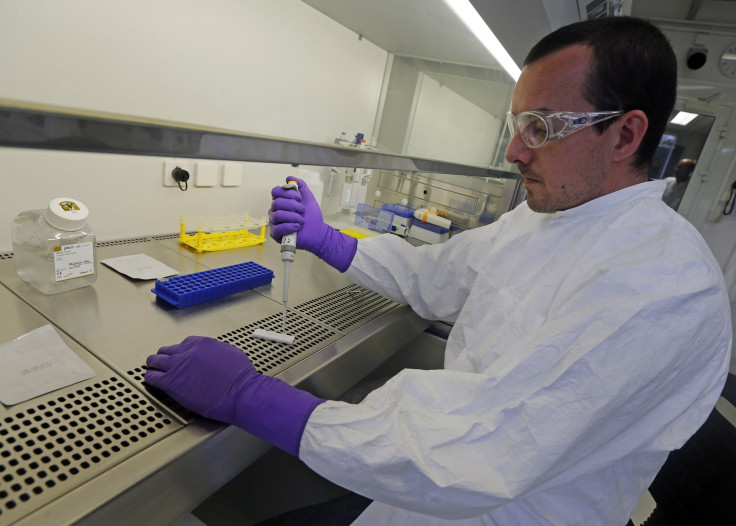'Simple' urine test: First method to diagnose pancreatic cancer before terminal stage

As there is currently no early diagnostic test available to detect early stages of pancreatic cancer, researchers have developed a simple urine test . Scientists from the United Kingdom found a combination of three proteins at high levels in urine which can act accurately as a warning sign of the early-stage pancreatic cancer before terminal stage.
The team at Barts Cancer Institute, in Queen Mary University of London, in their study published in the journal Clinical Cancer Research, has found combination of three proteins present in urine forms a “robust panel” that can detect patients with stages I-II pancreatic cancer. UK scientists identified the proteins that have a “signature” can signal the most common form of pancreatic cancer in its early stages and can also help distinguish the cancer from chronic pancreatitis.
The team found patients with pancreatic cancer have increased levels of each of the three proteins - LYVE1, REG1A and TFF1 - when compared to urine samples of healthy patients, while pancreatitis patients had significantly lower levels than cancer patients. The protein signature could identify the most common form of the disease with over 90 percent accuracy among 1,500 proteins found in the urine samples, authors said.
The researchers tested almost 500 urine samples, with fewer than 200 patients with pancreatic cancer, 92 from patients with chronic pancreatitis and 87 from healthy volunteers. The rest of the samples were from patients with non-threatening and cancerous liver and gall bladder conditions.
With few specific symptoms, more than 80 percent of people with pancreatic cancer are diagnosed when it has already spread, so they are not eligible for surgery to remove the tumour, which is currently the only potential cure, according to the study. Only 3 percent of patients are alive five years after diagnosis, and approximately 9,000 people are diagnosed with pancreatic cancer in the UK every year.
Those at low survival rate include people with a family history of the cancer, heavy smokers, obese people and people over 50 who are newly diagnosed with diabetes, as recorded in UK for 40 years. However, the director of Barts Cancer Institute and study co-author, Professor Nick Lemoine, said it is “a huge challenge to diagnose pancreatic cancer sooner” but the finding could help “make a big difference to survival rates.”
"With pancreatic cancer, patients are usually diagnosed when the cancer is already at a terminal stage, but if diagnosed at stage 2, the survival rate is 20 percent, and at stage 1, the survival rate for patients with very small tumours can increase up to 60 percent," he stated. And the urine test could be able to help improve the diagnostic for patients with pancreatic cancer as “from something that is advanced and late stage to something that is early stage and potentially curable by surgery,” Lemoine added.
For the effectives of the proposed urine test, the authors said, more research is planned, and scientists will focus on people whose genes put them at particular risk of pancreatic cancer. The simple and inexpensive cancer test could be available for use within the next few years, they stated.
Fiona Osgun, health information officer at Cancer Research UK said, "At the moment, we're a long way from knowing if this research could lead to a test that would help detect pancreatic cancer at an early stage, or who that test might benefit." But she added the finding "is vital as there's been little progress in improving survival for pancreatic cancer, and innovative approaches are needed."
Contact the writer at feedback@ibtimes.com.au, or let us know what you think below.






